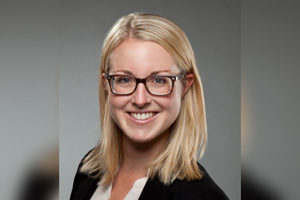KCG Fellow Saskia Mösle Involved in a New Study on the COVID-19 Impact on the Global Economy

The COVID-19 pandemic is a tremendous challenge for the national and global health care. It also poses a huge challenge to the world economy and the international trade. Against this background, Dr. Klaus-Jürgen Gern (Kiel Institute for the World Economy (IfW)) and Saskia Mösle (IfW & KCG) analyse the impact of the COVID-19 pandemic on the global economy from the point of view of the special economic zones (SEZ) worldwide. Their analysis is based on a recent SEZ survey that was jointly carried out by IfW and the World Free Zones Organization between March 23, 2020, and April 3, 2020.
Gern and Mösle (2020) shows that the pandemic has already affected the activities of almost all SEZ surveyed at least to some extent and the impact is expected to be further intensified in the coming months. Their analysis also indicates that the COVID-19 pandemic affects SEZs through different channels, incl. containment measures implemented, the decrease in global demand, disruptions in supply chains and deterioration in the financial environment. While the containment measures are considered by an overwhelming majority of SEZs from all regions in the world as a key transmission channel through which the COVID-19 pandemic affects or will affect their activities, the other three channels are found to be differently relevant for SEZs in different regions. The decrease in global demand was considered as a key transmission channel by a particularly high share of SEZs in Asia and Latin America, whereas the supply chain disruptions are relatively more prominent for SEZs in Asia, Africa and the Middle East. The fourth channel, deterioration in the financial environment, seems to be relevant for the majority of the SEZs in Latin America but it is considered as relevant for a much smaller share of SEZs in the other regions.
The paper “Gern K.-J. and Mösle, S. (2020), The Impact of the COVID-19 Pandemic on the Global Economy — Survey-based Evidence from Free Zones, Kiel Policy Brief No. 139, Kiel Institute for the World Economy” is available here.



 KCG Projects
KCG Projects


